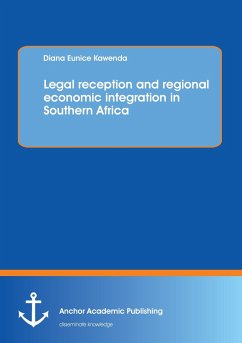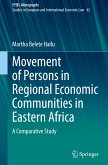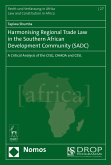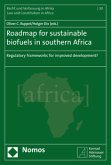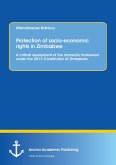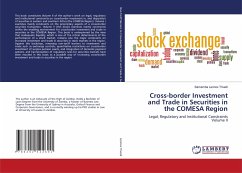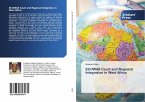The dire African economic situation has been a perennial problem for the past six decades. Many problems emanate from slow economic growth, such as poverty and unemployment. There is a need for a collective effort to ensure economic growth, which would be the most viable solution to these problems, and the key to such a collective effort is regional economic integration (REI).
This study examines REI within the legal context. It tests the proposition that the law can be used as a means to achieving REI. At the heart of this proposition lies the legal challenge that comes with the different approaches to legal reception and how they impede the realisation of REI. An analysis is performed of the theories related to legal reception, which include the monist, the dualist and the hybrid theories. REI was embraced in Europe and has yielded fruitful results. There is no doubt that the collective efforts to realise economic growth in other continents stem from the inspiration of the European example. Europe is used in this study to illustrate how the obstacles that accompany the different approaches to legal reception may be superseded. The study examines how the law was used in Europe as a means to attain REI. An attempt is then made to understand REI from an African perspective by setting out the legal framework and its shortcomings. Attention is paid to Africa's sub-region of Southern Africa, and the study examines legal reception within Southern Africa and how the different approaches to legal reception within the two RECs, the SADC and COMESA, impact upon the realisation of REI. It seeks to evaluate the possibility that the African continent, particularly Southern Africa, may be able to use the law to attain REI. A further analysis is made by examining South Africa's approach to legal reception and how this impacts on the realisation of REI.
This study examines REI within the legal context. It tests the proposition that the law can be used as a means to achieving REI. At the heart of this proposition lies the legal challenge that comes with the different approaches to legal reception and how they impede the realisation of REI. An analysis is performed of the theories related to legal reception, which include the monist, the dualist and the hybrid theories. REI was embraced in Europe and has yielded fruitful results. There is no doubt that the collective efforts to realise economic growth in other continents stem from the inspiration of the European example. Europe is used in this study to illustrate how the obstacles that accompany the different approaches to legal reception may be superseded. The study examines how the law was used in Europe as a means to attain REI. An attempt is then made to understand REI from an African perspective by setting out the legal framework and its shortcomings. Attention is paid to Africa's sub-region of Southern Africa, and the study examines legal reception within Southern Africa and how the different approaches to legal reception within the two RECs, the SADC and COMESA, impact upon the realisation of REI. It seeks to evaluate the possibility that the African continent, particularly Southern Africa, may be able to use the law to attain REI. A further analysis is made by examining South Africa's approach to legal reception and how this impacts on the realisation of REI.

